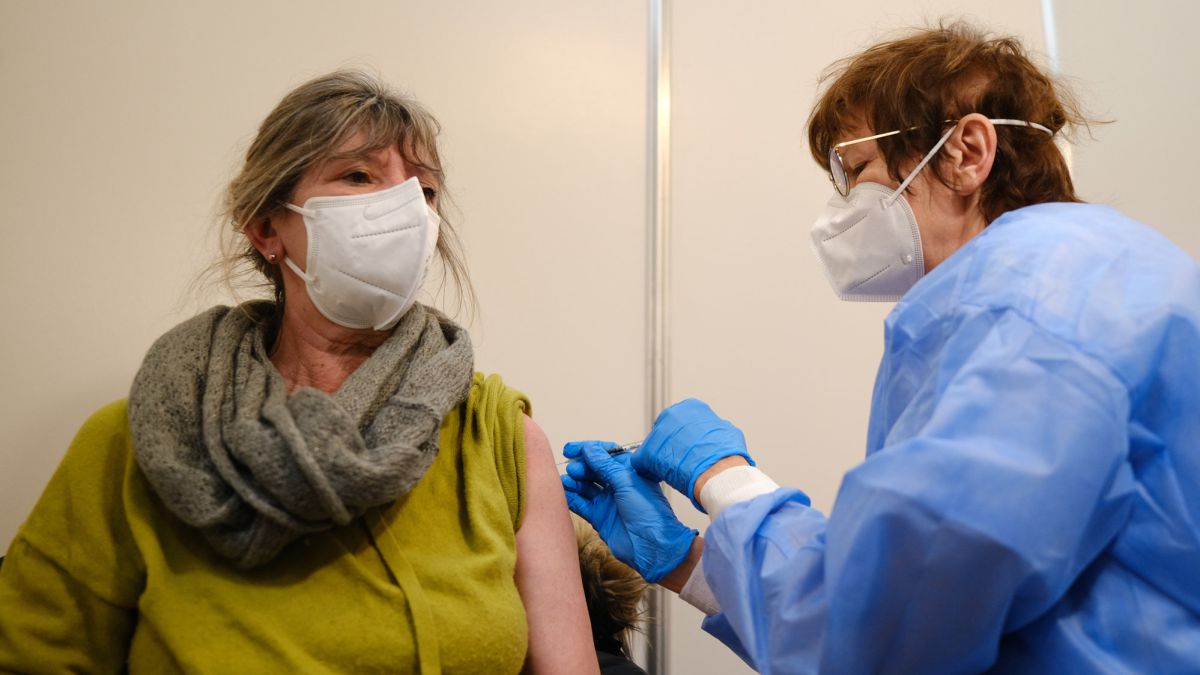When we woke up to the news that Russia had invaded Ukrainesocial media quickly filled up with statements of support to the Ukrainian people.
As the days went by, many felt an insecurity about whether it was okay to return to normal on social media, to post events from their normal lives. During the winter holidays, the feed was filled with holiday photos abroad, the ski slope or the cabin – often with a reference to the atrocities taking place in Ukraine.
Psychologist Maria Østhassel is an avid user of social media, among other things to provide tips and advice to her many thousands of followers on the account “psyktdeg” on Instagram, Tiktok and Facebook.
She says that it is completely natural to feel an ambivalence about what is okay to share while the war is raging.
– I myself also felt the conflicting thoughts, says Østhassel, who has been nicknamed the “Tiktok psychologist”.
Going on standby
She says that it is natural that we react with strong emotions immediately when a war situation is a fact.
– This is simply because it is a crisis situation that we must take into account. And as humans, we are good at mobilizing quickly and quickly to go on standby, says Østhassel.
She explains that it is normal for us to go into a kind of shock and follow as much as possible what is happening in the media.
When we begin to get an overview of the situation, it is easier for us to return to living our normal lives – at the same time as our thoughts go to all those who are on the run.
– It is healthy that we do not take in all the horrific acts of war over time. Ukrainians are also not benefited by us struggling mentally, by taking in the war constantly, says the psychologist.
– MASSIVE: The war content flows towards us both in the news and on social media. Psychologists believe it is important to take a break from the current in between. Photo: TikTok montage
–
She justifies this, among other things, with the fact that many Ukrainians will now flee and seek residence in Norway as well.
– Those who flee and come to Norway will be better off if they can reach a population that is mentally strong and ready to receive them in a good way. We do not become mentally strong by digging into the gloom of war all the time, says Østhassel.
There is no final decision
The psychologist also spent some time before she landed on what was right for her in the balance between posting about the war and her daily life.
– I also got crisis thoughts, which is completely natural when everything is new to relate to and we are in a crisis situation. But I thank my crisis thoughts because it makes us better equipped to cope with life when a crisis hits us, she says.
The psychologist believes that there is no final decision on what is right and wrong about how we relate to the war on social media.
– Everyone must know for themselves what is right for them. And then we all have to be a little generous with each other and not judge those who have a need to share that they are enjoying a party with friends or are on a long-awaited holiday abroad, says Østhassel.

– EXPERT: Tiktok psychologist Maria Østhassel says that there is no final decision on how we relate to the war. Photo: Kristoffer Myhre
–
The psychologist himself was sitting with the hairdresser when TV 2 called. She had just posted a picture to her followers about how good it was to sit and get some care and talk to her regular hairdresser.
– The war and the acts of war are terrible, but it is important to be present in our own lives and feel grateful that our free life must go on.
Sympathy and solidarity
Melanie Magin, who is an associate professor of media sociology at NTNU and an expert in social media, agrees with Østhassel.
Magin says that it is completely natural and understandable that many Norwegians are shocked by Russia’s invasion of Ukraine and that they want to show sympathy and solidarity with the Ukrainian people on social media.
Some post genuine empathy, while others post to show those around them that they have great compassion for the victims of the war.

– Associate Professor Melanie Magin in Media Sociology at NTNU. Photo: Christof Mattes
–
– The fact that many mention the war on social media can also affect the algorithms. The more popular it is to post a specific content, the more others will see it. This means that it attracts even more attention to the war, says the social media expert.
Without a guilty conscience
Like Østhassel, Magin believes that everyone must find answers to what is right for oneself to post on social media while a war is going on in Europe.
“Even if you post pictures from the ski slope during the winter holidays or sunset in Spain, it does not mean that you are not worried about or not interested in the war that is going on, or that you are not in solidarity with people in Ukraine,” says Magin.
She points out that social media only shows a very small part of our lives.
– Even though we are shocked and scared, it does not help people in Ukraine if we put our lives on pause completely. Living our ordinary lives here in Norway does not mean that we do not care about the atrocities of war. I do not think you need to have a bad conscience when you post other things than news from Ukraine, she says.
–


